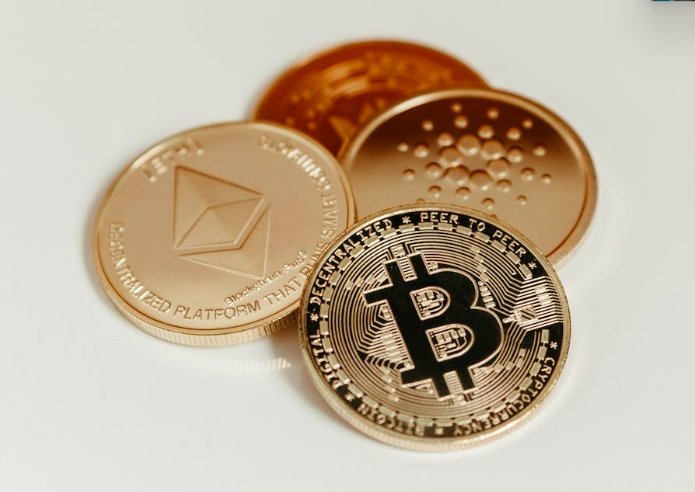In recent years, the world of cryptocurrency has exploded with an ever-increasing number of altcoins entering the market. Altcoins, also known as alternative coins, are digital currencies that are not Bitcoin. These digital assets are created to serve specific purposes, such as providing a platform for more efficient payments, more secure storage of data, or a platform for users to access decentralized applications. Despite the potential benefits of altcoins, investors must be aware of the risks associated with investing in this emerging asset class.
This article seeks to provide readers with an overview of the opportunities and risks associated with investing in altcoins. We will discuss the variety of altcoins available, the potential benefits of investing in these digital assets, and the risks associated with them. We will also discuss the importance of understanding the underlying technology of the altcoins before investing in them. Ultimately, the goal of this article is to help investors make informed decisions when it comes to investing in this exciting asset class.
Understanding Altcoins
Definition of Altcoins
Altcoins, or alternative coins, are digital assets designed to work as a medium of exchange using cryptography. They are similar to Bitcoin, but they are designed with different algorithms, protocols, and features. Altcoins are often used to diversify portfolios, diversify risk, or to transact in a manner that is not possible with Bitcoin.

Differences between Altcoins and Bitcoin
Altcoins and Bitcoin share many similarities, however there are some key differences between the two. Bitcoin is the first and original cryptocurrency, which means it has the most established infrastructure, users, and market capitalization. Altcoins, on the other hand, are newer and have not been around as long. They also commonly have different features or protocols, such as different mining algorithms, different consensus mechanisms, or different blockchains.
Popular Types of Altcoins
The most popular types of altcoins are Ethereum, Ripple, Litecoin, Binance Coin, Monero, and Dogecoin. Ethereum is a decentralized platform that runs smart contracts, while Ripple is a real-time gross settlement system and currency exchange. Litecoin is a peer-to-peer cryptocurrency that focuses on faster transaction times and lower fees. Binance Coin is the native token of the Binance exchange, which is one of the most popular exchanges in the world. Monero is a privacy-focused cryptocurrency, and Dogecoin is a popular meme-based cryptocurrency.
Advantages and Disadvantages of Altcoins
The advantages of investing in altcoins is that they can offer a greater degree of diversification than Bitcoin alone, as well as potentially higher returns. Altcoins can also be used to transact in a manner that is not possible with Bitcoin. On the other hand, the disadvantages of investing in altcoins is that they are much more volatile than Bitcoin, and their value can drop significantly in a short amount of time. Furthermore, most altcoins have a much lower liquidity than Bitcoin, which means they can be harder to buy and sell.
Opportunities and Risks of Altcoins
Investment Potential of Altcoins
Altcoins offer tremendous potential for investors. As a result of their relatively low prices and huge potential upside potential, altcoins can be extremely profitable investments in the short to medium term. Additionally, altcoins offer investors exposure to emerging technologies and markets that often have much higher returns than more established investments such as stocks and bonds.
Risk Factors Associated with Altcoins
However, investing in altcoins comes with a significant amount of risk. Altcoins are extremely volatile, and their prices can quickly rise and fall due to a variety of factors, such as news, regulation, and general market sentiment. Additionally, altcoins can be subject to hacking, theft, and other security risks. As a result, investing in altcoins can be a highly risky endeavor, and investors should be aware of the risks before investing.
How to Assess the Potential of an Altcoin
When assessing the potential of an altcoin, investors should consider several factors. The first is the technology behind the altcoin. Is the technology innovative and does it have the potential for mass adoption? Investors should also consider the development team behind the altcoin. Are they experienced and do they have a good track record of developing successful projects? Finally, investors should consider the liquidity of the altcoin. Is the altcoin traded on major exchanges and is there enough liquidity to facilitate trades? By assessing each of these factors, investors can better evaluate the potential of an altcoin.
Factors Affecting Altcoin Value
Market Demand and Supply:
Market demand and supply are the most important factors influencing altcoins value. The higher the demand for altcoins, the higher the price. Conversely, if there is a lack of interest or demand in the altcoin, the price of the coins decreases. The supply of altcoins is also a factor since if there is a limited supply, it will create a shortage in the market and the price will rise.
Technological Advancements:
The technological advancements in altcoins also affects the value of altcoins. If there are new developments or improvements to the technology of the altcoin, it will increase the value of the coins. This is because the new developments can make the altcoin more efficient, secure and reliable. Additionally, if the altcoin is able to integrate with other platforms, it will increase the usability of the coins, thus increasing its value.
Adoption and Popularity:
The adoption and popularity of the altcoin also affects its value. If more people and businesses start to use and accept the altcoin, the demand for the coins will increase, thus increasing its value. Additionally, if the altcoin is used in an innovative way or is seen as a reliable and secure payment method, the value of the coins will increase.
News and Media Coverage:
News and media coverage of altcoins also affects its value. Positive news and media coverage of the altcoin will increase the demand for the coins, thus increasing its value. Conversely, negative news and media coverage will reduce the demand and value of the altcoins.
Altcoin Trading Strategies
Long-term investment: Long-term investment in Altcoin trading strategies involves buying and holding onto Altcoins for a period of time. This strategy allows investors to accumulate Altcoins at a lower cost, and benefit from the long-term rise in value of the Altcoin. Investors should research and understand the fundamentals of the Altcoin they plan to invest in, to ensure they are making the right decision.
Short-term trading: Short-term trading involves actively buying and selling Altcoins in the hopes of making a profit. This strategy is more focused on technical analysis and is usually done on a daily basis. Short-term trading is a high risk and high reward strategy, as the market can be volatile and unpredictable. Investors should carefully monitor the market and use strategies such as stop-losses to limit losses.
Dollar-cost averaging: Dollar-cost averaging is a strategy used to reduce the risk of investing in Altcoins. This strategy involves investing a fixed amount of money into an Altcoin at regular intervals, regardless of the price. This strategy spreads out the risk by investing over time, and also allows investors to take advantage of dips in the market.
Diversification: Diversification is a risk management strategy used to reduce the risk of investing in a single Altcoin. This strategy involves investing in a variety of Altcoins, to spread out the risk and benefit from the growth of the whole market. Investors should carefully research and choose Altcoins that have different risks and reward profiles, to ensure they are diversifying as much as possible.
These are the main Altcoin trading strategies that investors should be familiar with and use when trading in the Altcoin market. Each strategy has its own advantages and disadvantages, and investors should carefully consider their goals before investing. It is important to understand the risks and rewards associated with each strategy, and use the best strategy that fits their needs and goals.
Choosing an Altcoin Exchange
When it comes to trading altcoins, it is important to choose the right exchange. Before investing in an altcoin, it is essential to do research and compare the various exchanges that offer altcoins. Here are some factors to consider when choosing an exchange.
• Reputation: Reputation is one of the most important factors to consider when choosing an exchange. It is important to research the exchange and look for reviews from users and industry experts. This will give you an idea of how trustworthy and reliable the exchange is.
• Fees: Fees are an important factor to consider when choosing an exchange. Different exchanges charge different fees for different services. It is important to research the fees of different exchanges and compare them to find the best deal.
• Security: Security is another important factor to consider when choosing an exchange. It is important to look into the security measures taken by the exchange such as two-factor authentication, cold storage, and encryption.
• Customer Support: Customer support is another important factor to consider when choosing an exchange. It is important to research the customer support offered by the exchange and look for reviews from users and industry experts.
• Payment Methods: Payment methods are also important to consider when choosing an exchange. Different exchanges accept different payment methods. It is important to research the payment methods accepted by the exchange and compare them to find the best deal.
Popular Altcoin Exchanges
• Binance: Binance is one of the most popular altcoin exchanges. It offers a variety of altcoins and has low fees. It also has a wide range of payment methods, excellent customer support, and strong security measures.
• KuCoin: KuCoin is another popular altcoin exchange. It offers a variety of altcoins and has low fees. It also has a wide range of payment methods, excellent customer support, and strong security measures.
• Huobi: Huobi is another popular altcoin exchange. It offers a variety of altcoins and has low fees. It also has a wide range of payment methods, excellent customer support, and strong security measures.
Security and Safety Considerations
When it comes to security and safety, it is important to do research and compare the various exchanges. Here are some security and safety considerations to keep in mind when choosing an exchange:
• Two-Factor Authentication: Many exchanges offer two-factor authentication, which is an extra layer of security. It is important to research the two-factor authentication offered by the exchange and use it to keep your account secure.
• Cold Storage: Many exchanges offer cold storage, which is an extra layer of security. It is important to research the cold storage offered by the exchange and use it to keep your funds secure.
• Encryption: Many exchanges offer encryption, which is an extra layer of security. It is important to research the encryption offered by the exchange and use it to keep your data secure.
• Backup: Many exchanges offer a backup service, which is an extra layer of security. It is important to research the backup service offered by the exchange and use it to keep your data secure.
• Reviews: It is important to research the reviews of the exchange and look for reviews from users and industry experts. This will give you an idea of how trustworthy and reliable the exchange is.
• Regulations: It is important to research the regulations of the exchange and make sure that it is compliant with the laws of your country. This will give you an idea of how safe and secure the exchange is.
Altcoin Wallet Management
Different Types of Altcoin Wallets
There are various types of altcoin wallets available for users to store and manage their digital assets. These include web wallets, desktop wallets, mobile wallets, hardware wallets, and paper wallets. Each type of wallet has its own advantages and disadvantages, so it’s important to choose the right type of wallet for your needs and level of security.
Web Wallets: Web wallets are online wallets that are hosted on a website. They are the most convenient and user-friendly type of wallet and can be accessed from any device with an internet connection. They are also the least secure type of wallet as they are vulnerable to hacking and theft.
Desktop Wallets: Desktop wallets are software wallets that are installed on your computer. They are more secure than web wallets as they are not connected to the internet and can only be accessed from the computer it is installed on. However, they are vulnerable to malware and viruses, so it’s important to keep your computer secure.
Mobile Wallets: Mobile wallets are software wallets that are installed on your smartphone. They are convenient and secure as they can be used on the go and are protected by the security measures on your phone. However, they are vulnerable to theft and hacking if your phone is lost or stolen.
Hardware Wallets: Hardware wallets are physical wallets that store your digital assets securely on a USB device. They are the most secure type of wallet as they are not connected to the internet and are protected by a PIN code. However, they are also the most expensive type of wallet.
Paper Wallets: Paper wallets are physical wallets that store your digital assets securely on a piece of paper. They are the most secure type of wallet as they are not connected to the internet and are protected by a physical paper wallet. However, they are also the least convenient type of wallet as you need to manually transfer digital assets from the paper wallet to another wallet to use them.

Choosing the Right Altcoin Wallet
When choosing an altcoin wallet, it’s important to consider several factors such as security, convenience, cost, and privacy. The type of wallet you choose should depend on your needs and level of security. For example, if you need a wallet for long-term storage of your digital assets, a hardware wallet or paper wallet would be the best option. If you need a wallet for daily transactions, then a web or mobile wallet would be the best choice.
Best Practices for Safe Wallet Management
Once you have chosen an altcoin wallet, it’s important to follow best practices for safe wallet management. This includes:
• Secure your wallet: Make sure your wallet is secured with a strong password and two-factor authentication.
• Keep your wallet private: Don’t share your wallet information with anyone.
• Backup your wallet: Make sure to keep a backup of your wallet in a secure location.
• Monitor your wallet: Be sure to monitor your wallet for any suspicious activity.
• Use a trusted wallet provider: When choosing a wallet provider, make sure to choose a reputable and trusted provider.
Regulatory and Legal Considerations
Current Regulatory Landscape: The current regulatory landscape for altcoin trading is highly fragmented and complex. Different jurisdictions have different rules and regulations when it comes to the trading of altcoins. In the United States, the Securities and Exchange Commission (SEC) and the Commodity Futures Trading Commission (CFTC) are the two primary regulators of altcoin trading. They both impose a number of requirements on altcoin trading, including registration, disclosure, and reporting. In addition, the Financial Industry Regulatory Authority (FINRA) regulates the trading of altcoins in the US. In the European Union, the European Securities and Markets Authority (ESMA) has recently proposed a set of regulations for the trading of altcoins, which are expected to come into force in 2021.
Legal Risks and Challenges: The legal risks and challenges associated with altcoin trading are numerous. One of the most significant risks is the potential for fraudulent or manipulative trading practices, which can lead to significant losses for investors. Additionally, there is the risk of money laundering, as anonymous transactions can be easily conducted via altcoin trading. Finally, there is also a risk of cybercrime, as hackers can target exchanges and steal funds.
Tax Implications of Altcoin Trading: Tax implications of altcoin trading vary greatly depending on the jurisdiction in which the trading takes place. In the United States, the Internal Revenue Service (IRS) has recently issued guidance on the taxation of altcoin transactions. Generally speaking, any gains or losses from the trading of altcoins must be reported on a taxpayer’s annual tax return. Additionally, taxes may be imposed on any profits from the sale of altcoins. It is important to consult a tax professional to ensure that all tax requirements are met.
Conclusion
In conclusion, exploring the world of altcoins offers both opportunities and risks. On the one hand, altcoins offer the potential for higher returns than traditional investments. On the other hand, altcoins are more volatile and riskier investments than traditional investments. Therefore, it is important for investors to do their research, understand the risks associated with altcoins, and make educated decisions when investing. By doing so, investors can take advantage of the potential rewards of investing in altcoins while minimizing their risks. Ultimately, altcoins can be a valuable addition to an investor’s portfolio, as long as they are approached with caution and due diligence.
FAQs
1. What is an Altcoin?
An altcoin is any cryptocurrency other than Bitcoin. Altcoins are digital assets that are created using blockchain technology and are built to serve various use cases. These digital assets are created to enable peer-to-peer transactions and are decentralized, meaning no government or single entity controls their supply or value.
2. What are the advantages of investing in Altcoins?
Investing in Altcoins can provide investors with a way to diversify their portfolios, as they are not directly linked to traditional financial markets. Additionally, Altcoins can offer investors potential higher returns than traditional investments and can provide access to innovative projects and technologies.
3. What are the risks associated with investing in Altcoins?
Investing in Altcoins carries a high degree of risk, as the value of any digital asset can be volatile. Additionally, Altcoins are largely unregulated, meaning there is no guarantee that investors will be able to recoup their money if they are unsuccessful in their investment.
4. How do I start investing in Altcoins?
Investing in Altcoins can be done by first purchasing Bitcoin or Ethereum, two of the most popular cryptocurrencies. Once you have acquired Bitcoin or Ethereum, you can then use them to purchase Altcoins on exchanges such as Binance or Coinbase.
5. What is the difference between an Altcoin and a Token?
An Altcoin is a digital asset that is created and traded on its own blockchain, while a Token is a digital asset that is built on top of an existing blockchain. Tokens are typically used to represent a digital asset or utility, and may be used to provide access to certain services or products.
6. What is a good strategy for investing in Altcoins?
A good strategy for investing in Altcoins is to diversify your investments across different projects and digital assets. Additionally, it is important to conduct thorough research into any projects you are considering investing in and to ensure that you have a good understanding of the associated risks.
7. What should I look out for when investing in Altcoins?
When investing in Altcoins, it is important to look out for potential scams, as well as project teams that lack the experience to execute their projects. Additionally, it is important to look out for any changes in the fundamentals of the project, such as changes in the technology or the team, as these could signal potential problems.
8. What do I need to know before investing in Altcoins?
Before investing in Altcoins, it is important to understand the technology, the team behind the project, and the associated risks. Additionally, it is important to be aware of the differences between various digital assets and to ensure that you have sufficient funds to cover any potential losses.
9. What is a good way to track my investments in Altcoins?
A good way to track your investments in Altcoins is to use a cryptocurrency portfolio tracker such as Blockfolio or Delta. These trackers allow you to view your holdings, as well as receive notifications when prices change. Additionally, these trackers provide useful data and insights into the markets, which can help you make more informed decisions.
10. How can I stay up to date with the latest Altcoin news?
Staying up to date with the latest Altcoin news can be done by following popular cryptocurrency news outlets such as CoinDesk, Cointelegraph, and CryptoSlate. Additionally, joining cryptocurrency-related social media groups can be a great way to stay informed about the latest developments in the Altcoin space.


















